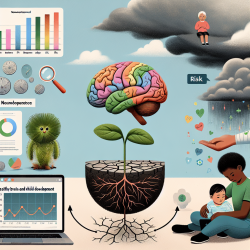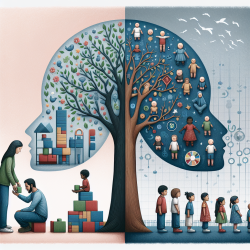The well-being of teachers in early childhood education (ECE) is a critical factor that influences both their professional performance and the developmental outcomes of their students. Recent research by Wiltshire (2022) highlights how performativity—teachers' ability to manage their outward expressions—can be both a coping mechanism and a source of stress. This blog explores the implications of this research for practitioners in the field, offering insights into improving teacher well-being and encouraging further exploration into this vital area.
The Impact of Performativity on Teacher Well-Being
The study conducted by Wiltshire (2022) during the COVID-19 pandemic focused on Head Start teachers and their experiences with stress and warmth in the classroom. It revealed that teachers often engage in performativity to mask their stress, aiming to maintain a warm classroom environment despite personal and professional challenges. This act of masking can exacerbate stress levels, affecting both teacher well-being and the quality of teacher-child interactions.
Understanding Performativity
Performativity in this context refers to the behaviors teachers adopt to meet external expectations, such as maintaining a positive classroom atmosphere or achieving high scores on assessments like the Classroom Assessment Scoring System (CLASS). While these behaviors are intended to benefit students, they can lead to increased stress when teachers feel compelled to hide their true emotions or struggle to meet unrealistic standards.
Strategies for Enhancing Teacher Well-Being
To mitigate the negative effects of performativity, educators and administrators can implement several strategies:
- Promote Authenticity: Encourage teachers to express genuine emotions and create an environment where vulnerability is accepted as part of the learning process. This can help reduce stress by aligning teachers' inner experiences with their outward expressions.
- Flexible Curriculum Implementation: Allow teachers more autonomy in adapting curricula to meet the unique needs of their students. This flexibility can help teachers feel more empowered and less constrained by rigid mandates.
- Reevaluate Assessment Tools: Consider revising or supplementing tools like CLASS with assessments that account for diverse cultural expressions of warmth and teacher-student interactions.
- Provide Supportive Resources: Offer professional development opportunities focused on stress management and emotional regulation techniques. Support networks among educators can also provide a platform for sharing experiences and coping strategies.
The Role of Research in Supporting Educators
The findings from Wiltshire's study underscore the importance of ongoing research into teacher well-being. By examining the lived experiences of educators, researchers can identify systemic issues that contribute to stress and develop targeted interventions. Practitioners are encouraged to engage with this research actively, either by participating in studies or applying evidence-based strategies in their classrooms.
Encouraging Further Exploration
Educators interested in exploring this topic further can access the original research paper for a comprehensive understanding of the study's methodology and findings. Engaging with such research not only enhances individual practice but also contributes to broader efforts aimed at improving educational environments for both teachers and students.
Early Childhood Education Teacher Well-Being: Performativity as a Means of Coping
Conclusion
The well-being of early childhood educators is crucial for fostering positive educational outcomes. By understanding and addressing the challenges posed by performativity, educators can create more supportive classroom environments that benefit both themselves and their students. Continued research and dialogue are essential for developing effective strategies that promote teacher well-being and enhance educational quality.










